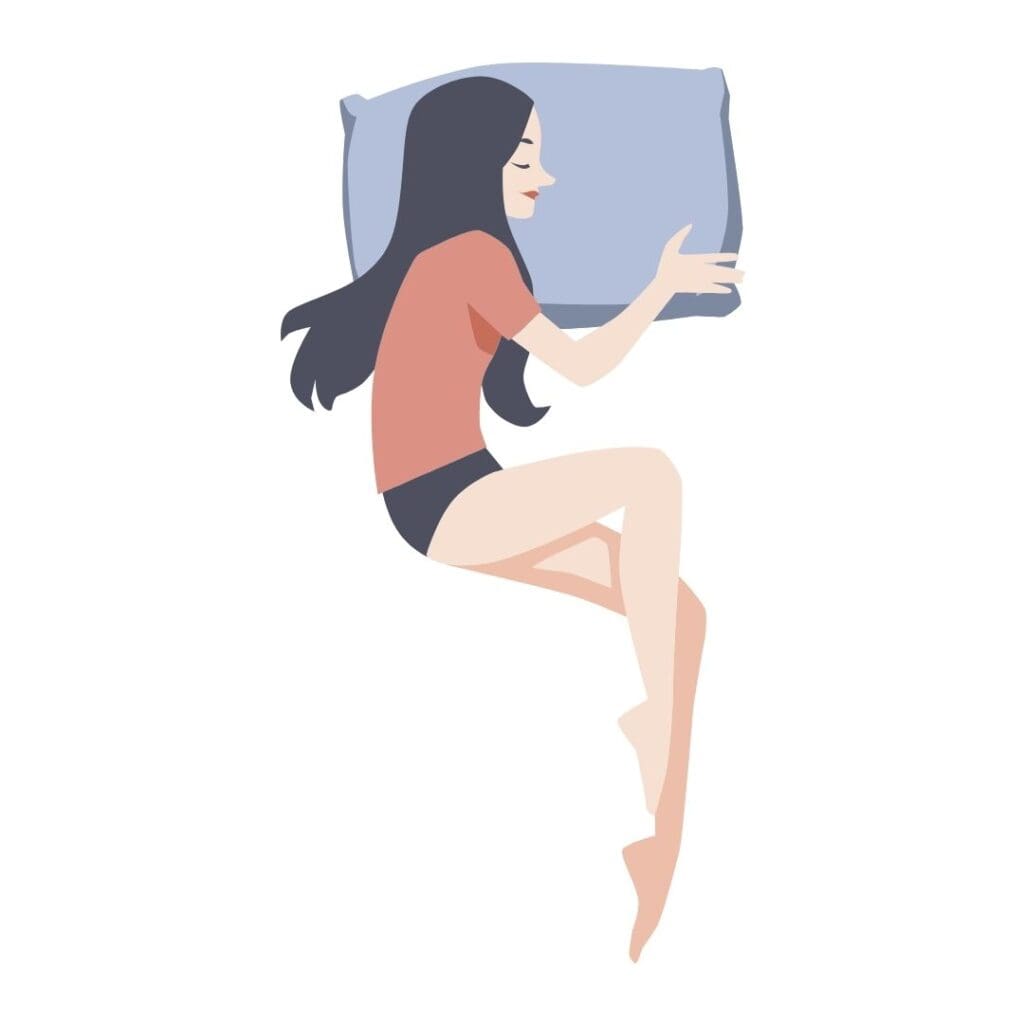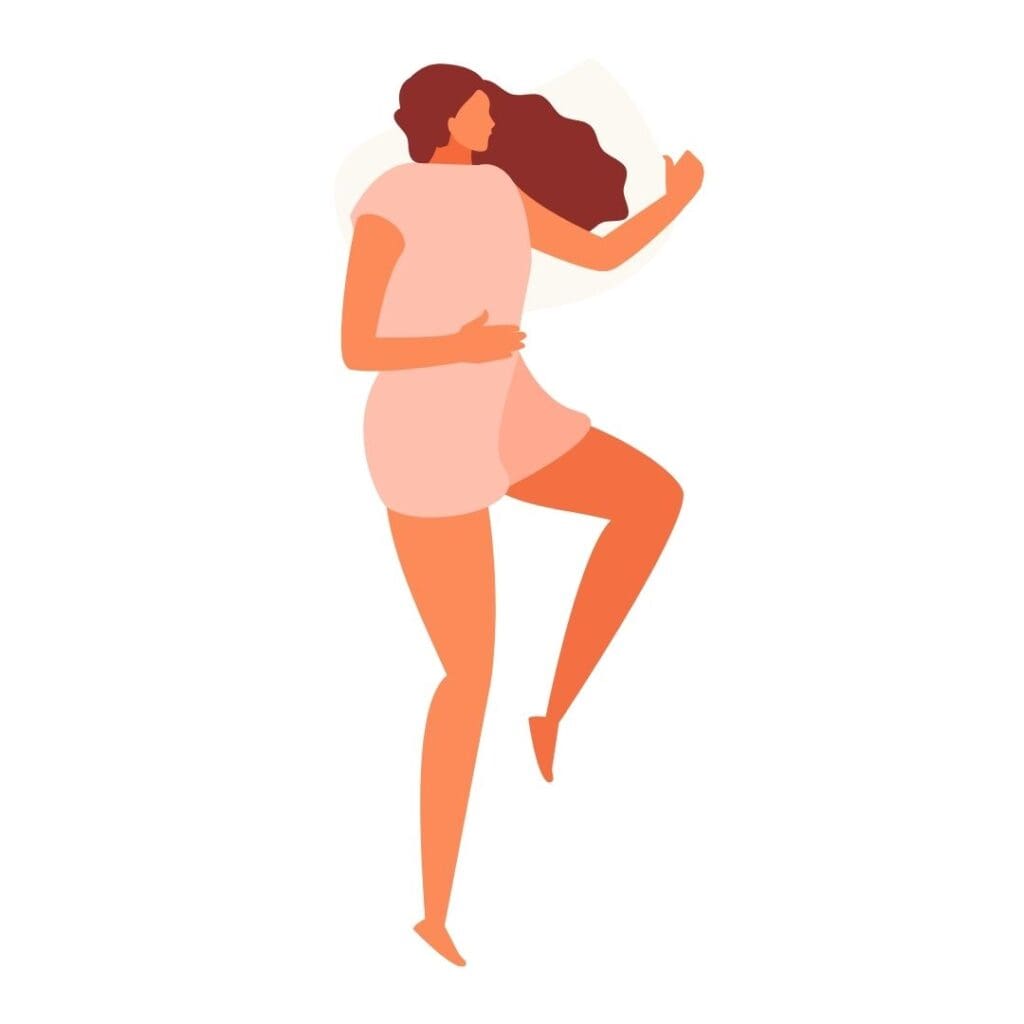When the lights go out, and you nestle into your favourite sleeping position, that position can reveal a lot about your personality.
Several years ago, UK-based sleep expert Professor Chris Idzikowski surveyed over 1,000 British adults to uncover links between sleep positions and personality. He used these results to draw connections between a persons personality traits and their sleeping position.
His studies found the fetal position was most common amongst females, as the position is linked to shyness and sensitivity.
Side sleeping with arms outstretched means you may be more open-natured and often stick to decisions, and stomach sleepers with hands under the pillow often don’t like criticism but are sociable by nature.
Since then, there have been varying other studies from the world’s leading sleep experts investigating how and what a person’s sleeping position can reveal about their personality.
Which sleeping position is yours.
The Foetus (fetal):
This is where you lie on your side, knees tucked up. You might swap sides in the night, but you tend to remain curled up almost all night.

Personality traits of fetal sleepers: Security is important, and you don’t like to be dependent on others. This is a self-healing position and the first position we have all known before being born.
It’s natural when you feel threatened, alone, stressed or overwhelmed to go straight into this position for safety. People who sleep regularly in this position will often do everything for themselves and rarely ask for help.
The Log:
You lie on your side, with your legs straight, with your bottom arm curled under your head and your top arm by your side.

Log sleepers are grounded people. They always have a balance between their logical self and their feelings. They have a good sense of security, feel safe and comfortable within themselves and their environment.
Log sleepers know where they’re going and how to get there. If they get out of balance, they will overthink things a little. But ultimately, they will confidently work out their issue. Whether that means chatting to a colleague at work, or with a friend at your next coffee catch up.
The Yearner:
This is when you sleep on your side, with your arms in front of you.

The yearner sleeper craves constant external validation, which means they look to others for praise and reassurance.
Their inner child looks for security from the outside world and they can’t get by without their friends. They will always have a large support network, whether it be of friends or family, so they have people to turn to for help.
But even in those circumstances, asking for help is more of a knee-jerk reaction, as they would rather resolve the issue themselves instead of asking for help.
The Soldier:
You lie on your back, with your arms by your side.

Soldier sleepers are comfortable in their own skin. They are good in a team environment and can also operate independently. They see sleep as a functional need, so they won’t watch television or read in bed.
The bed is just a place to sleep. Soldier sleepers are dependable, steady people, who like to achieve in all aspects of life.
The Starfish:
This is where you sleep flat on your back, with your arms above your head, and your legs stretched out, occupying most of the bed. Either facedown or face up.

The starfish sleeper is open, trusting, and very self-confident. But they can also be known to be a little selfish.
They can be funny and entertaining, and don’t require validation from anyone. They often come up with great ideas and are super motivation to carry out the idea.
However, when the time comes, they will more than likely leave the heavy lifting to someone else. If given a difficult task to do at work, they will begin the project, but soon hand it over to the team to finish.
The Freefaller:
You sleep on your front, with your face in the pillow, or your head turned to one side.

Freefallers have difficult expressing themselves, especially in relation to what’s important to them in life. They can often see the negative side of things and because of this, they’re less trusting of others.
As they find it easier to be negative, that to look on the positive side of things. For example, if someone offers their help, the freefaller will question their motive.
In relationships, they tend to hold back because of their trust issues.
Because of this, they will often just go along with whatever their partner wants to do. However, in the end, this can cause a lot of resentment.


mexican online pharmacies prescription drugs
https://cmqpharma.com/# buying prescription drugs in mexico online
mexico pharmacies prescription drugs
п»їbest mexican online pharmacies: cmq pharma mexican pharmacy – medicine in mexico pharmacies
indian pharmacy paypal: top 10 pharmacies in india – best india pharmacy
http://indiapharmast.com/# indianpharmacy com
buy medicines online in india: top online pharmacy india – mail order pharmacy india
http://indiapharmast.com/# buy prescription drugs from india
online pharmacy india indian pharmacy paypal п»їlegitimate online pharmacies india
canadian drug pharmacy: canadian pharmacy india – online canadian pharmacy
http://indiapharmast.com/# top 10 pharmacies in india
canadian pharmacy antibiotics: reddit canadian pharmacy – canadian pharmacy online reviews
best canadian pharmacy safe canadian pharmacy canadian drug pharmacy
medication from mexico pharmacy: mexico pharmacy – buying prescription drugs in mexico
http://foruspharma.com/# pharmacies in mexico that ship to usa
canada drugstore pharmacy rx: canadapharmacyonline com – legitimate canadian pharmacy
canadian pharmacy india: canadian pharmacy king – my canadian pharmacy review
Paxlovid over the counter: paxlovid pharmacy – paxlovid pharmacy
http://ciprodelivery.pro/# where can i buy cipro online
https://doxycyclinedelivery.pro/# price of doxycycline 100mg
paxlovid cost without insurance: paxlovid buy – paxlovid pharmacy
doxycycline 150mg pill: where can i buy doxycycline online – doxycycline prescription uk
https://amoxildelivery.pro/# buy amoxicillin 250mg
ciprofloxacin order online ciprofloxacin mail online ciprofloxacin
http://paxloviddelivery.pro/# п»їpaxlovid
п»їpaxlovid: paxlovid for sale – Paxlovid over the counter
https://amoxildelivery.pro/# amoxicillin online canada
can you buy cheap clomid cost clomid without insurance where to buy clomid without prescription
https://paxloviddelivery.pro/# paxlovid buy
order amoxicillin uk where can i buy amoxicillin without prec amoxicillin 250 mg price in india
buy cipro online without prescription: buy cipro no rx – buy cipro online without prescription
can i get generic clomid prices: cost of cheap clomid pills – where can i get cheap clomid for sale
http://clomiddelivery.pro/# buying cheap clomid online
doxycycline over the counter canada doxycycline online purchase buy doxycycline online
http://doxycyclinedelivery.pro/# doxycycline 500mg tablets
doxycycline prescription online doxycycline rx coupon doxycycline prescription cost uk
http://ciprodelivery.pro/# buy cipro online without prescription
buy ciprofloxacin over the counter: cipro online no prescription in the usa – buy cipro online canada
https://ciprodelivery.pro/# buy cipro online
paxlovid generic: paxlovid cost without insurance – paxlovid covid
paxlovid price: Paxlovid over the counter – paxlovid price
https://doxycyclinedelivery.pro/# where can i get doxycycline
paxlovid buy paxlovid pharmacy Paxlovid over the counter
https://paxloviddelivery.pro/# Paxlovid buy online
buy generic ciprofloxacin cipro 500mg best prices where can i buy cipro online
https://ciprodelivery.pro/# cipro pharmacy
can you get generic clomid: generic clomid – order generic clomid online
http://ciprodelivery.pro/# buy generic ciprofloxacin
doxycycline 200: doxycycline where to get – doxycycline 400 mg price
http://paxloviddelivery.pro/# п»їpaxlovid
amoxicillin no prescipion: amoxicillin over counter – amoxicillin buy canada
https://doxycyclinedelivery.pro/# buy doxycycline online nz
where to buy amoxicillin medicine amoxicillin 500mg order amoxicillin online no prescription
https://amoxildelivery.pro/# price for amoxicillin 875 mg
how can i get clomid without insurance: where can i get clomid prices – where to get cheap clomid without dr prescription
buy amoxicillin 250mg: where can i buy amoxicillin over the counter – buy cheap amoxicillin online
http://clomiddelivery.pro/# where can i get clomid pill
http://clomiddelivery.pro/# buying clomid
http://amoxildelivery.pro/# amoxicillin buy online canada
where can i buy generic clomid without prescription can i buy cheap clomid for sale clomid pills
Paxlovid buy online: Paxlovid buy online – paxlovid price
buy cipro online usa: buy cipro no rx – buy cipro cheap